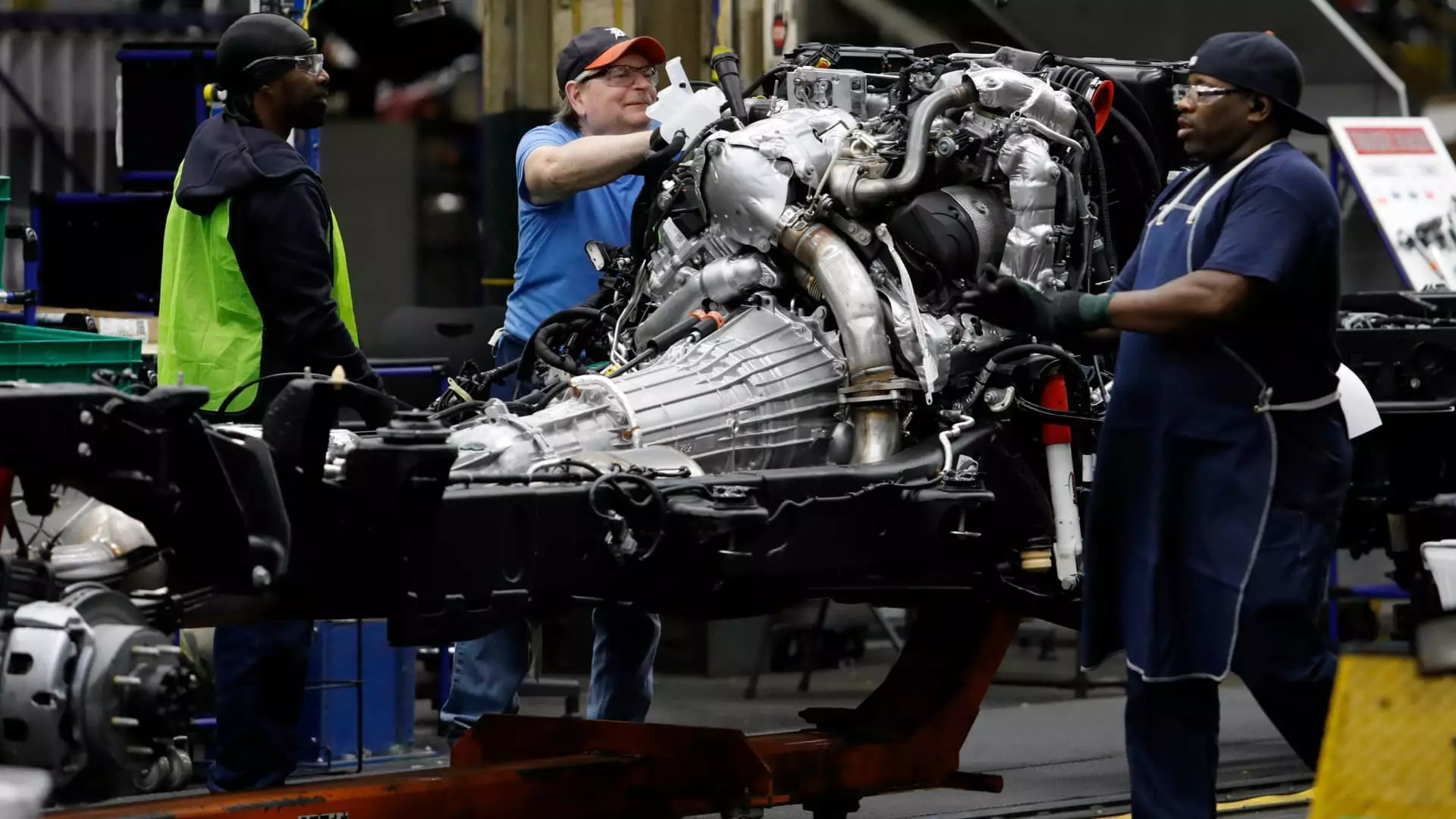Recently, General Motors (GM) faced an unexpected yet significant disruption in its production process, particularly affecting their lucrative line of heavy-duty pickups and SUVs. The automaker ceased operations at two of its key factories in response to supply chain impacts stemming from Hurricane Helene. This decision reflects the broader challenges faced by the automotive industry in maintaining seamless manufacturing amidst unpredictable external factors. The two facilities shuttered include the Flint assembly plant in Michigan, known for its heavy-duty truck production, and the Arlington Assembly plant in Texas, responsible for some of GM’s flagship SUVs, including the Chevrolet Tahoe and Cadillac Escalade.
As the situation unfolded, GM was careful not to speculate on when operations would return to normal, conveying a sense of responsibility in managing both its production capabilities and the welfare of its suppliers. Reports indicated that while shifts were canceled for a couple of days, the Arlington plant aimed for a swift return to work by the beginning of the following week. In an official statement, GM emphasized its commitment to collaborating with impacted suppliers, ensuring minimal disruption not just to its manufacturing processes, but also to the communities that rely on these businesses for their livelihoods.
The impact of Hurricane Helene extended beyond the immediate loss of productivity. With over 215 fatalities and many individuals still missing, the human toll of the storm added layers of urgency and complexity to GM’s operational decisions. The automaker refrained from disclosing which suppliers were affected, likely reflecting ongoing assessments of both the damage caused by the hurricane and the broader supply chain vulnerabilities exposed by this event.
The recent disruptions serve as potent reminders of the vulnerabilities in manufacturing ecosystems, a reality GM has experienced firsthand. Jeffrey Morrison, GM’s vice president of global purchasing and supply chain, articulated the ongoing challenges presented by natural disasters and labor strikes. He acknowledged that the pandemic changed the landscape of supply chain management, pushing the company to re-evaluate its entire value chain. The shift towards a more comprehensive mapping of supply tiers has allowed GM more visibility and control over its procurement processes, contributing to an increased ability to respond to crises.
Morrison’s insights highlight how the lessons learned from previous disruptions have contributed to more robust planning. “Covid really helped us map our value chain a lot deeper,” he stated, presenting a silver lining to the difficulties experienced during the pandemic. The ability to monitor sub-tier suppliers and engage in proactive dialogues has strategically positioned GM to minimize future disruptions.
While Hurricane Helene posed immediate challenges to GM’s production capabilities, the automaker’s response underscores its commitment to resilience in the face of adversity. The emphasis on collaboration with suppliers and the lessons learned from past experiences illustrate a more strategic approach to supply chain management. As GM navigates the aftermath of this natural disaster, its ability to adapt and optimize its processes will be crucial for a swift recovery and future preparedness against unforeseen challenges. This incident also raises broader questions about the automotive industry’s reliance on a delicate network of suppliers and the need for continued scrutiny in ensuring operational continuity during crises.

